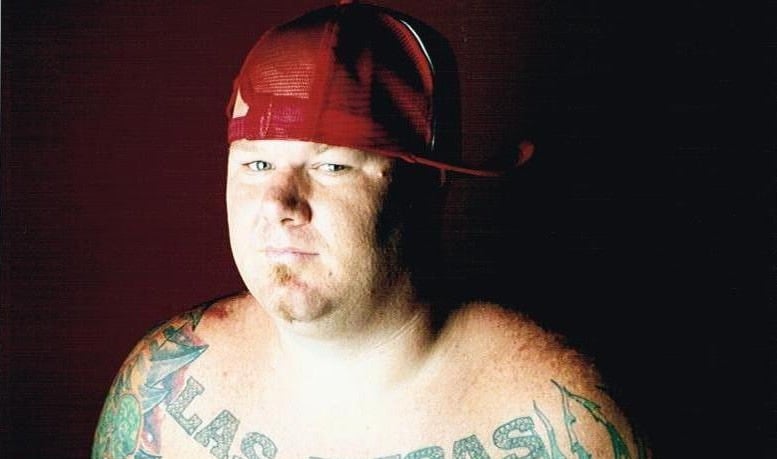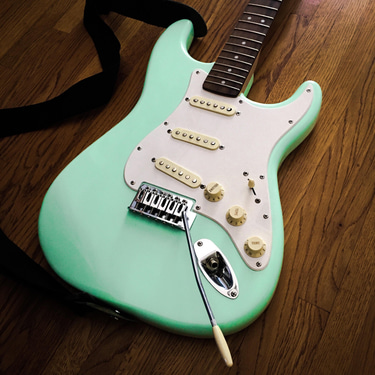Big B knows hard work and attitude are keys to success
By Jim Dail
8/12/20254 min read


He’s been called a white trash rapper, an alternative rocker and a modern-day Johnny Cash. No matter what anyone wants to label him, there’s little doubt that Big B has emerged from the underground circuit and hit the mainstream.
Exactly where that mainstream is may not be as clear cut.
“I’ve always loved music of all kinds,” he said. “My dad plays harmonica and drums and has played in a lot of blues bands. I’m a big guy [6’ 7” and 330 pounds], so I don’t fit the image of a lot of music. I love rap and punk and have molded them together. I’m not a rapper per se. I just write songs that make me feel good.”
And he is rather prolific at writing.
“Even if I was still doing it on a lower scale, I have a library of songs I’ve written or am working on,” he said. “If I wanted to, I could put out a record every two months for the next five years.”
Born in Upland and raised in Las Vegas, Big B was a member of bands such as 187 and Spade Brigade. He worked almost every gig he could find as he worked on his career.
“The hard thing is I’ve always been such an underground artist and doing things on the lower level, making a lot of noise there,” he said. “Going mainstream was a task, but I just kept pushing the bus until it got so big they had to let me in. I was just thinking that it was time to take this seriously and try to make this work.”
That meant a lot of time trying to get a label to believe in what he wanted to do.
“When I started selling records, I was working a regular job and got a call to do a record,” he said. “I put it out and it was still on an underground label. I was doing all this work but not trying to get bigger. I told the label I wanted a record that could go out to the masses. They said to do it and when I played it for them they came back and said you may have done it.”
And slowly but surely success is finding him. That also means that he’s subjected to the classic “sellout” label.
“I get called that all the time,” he said. “But I would be a sellout if I made the same record and didn’t try to make it to mainstream. It’s like in baseball. You can play in the minors, but you want to play in the majors so why not try to do that. I’m being true to myself. I’m okay with them feeling that way, but if you have the chance to do something bigger, they go for it.”
The key with Big B is that he doesn’t exactly fit a particular format, which he considers strength in many ways.
“It’s intriguing because there’s a lot of variety,” he said. “Maybe you listen to the CD and you don’t like track 7 and 8, but you love 4 and 6. I think it’s because I try to write real songs. I’m not trying to write catchy hooks, but songs with stories like Johnny Cash.”
That’s in part to his wide variety of influences.
“There are so many different people I like,” he said. “Johnny Cash, Willie Nelson, Social Distortion, Everlast, are all influences. Everlast came up through the ranks of hip hop artists and having him on my CD is a big deal. He didn’t ask for anything either. He’s one of the good guys.”
When it comes to writing, he can write all day long, but going into the studio is a bit different.
“You have to make it into a song,” he said. “A lot of rappers will buy beats and do it that way, but I go in with songs written and melodies in my head and work with Jim Perkins, my producer and tell him what I’m thinking.”
He cites Perkins as a key to his sound.
“I can go in raw with what I’m thinking in terms of the song and he’s the guy I can say it to and explain what I am envisioning,” he said. “He will tell me straight up how to do it or if it will work.”
Big B believes that is a vital part of any music success.
“You need someone in your life to tell you no, whether you are the president or a rapper,” he said. “You can’t have all yes men. That’s why I like to work with people and pick their brain. Everything has a different style and technique and Jim and I have done this awhile. He’s not afraid to tell me what he thinks. Guys who try to do everything themselves are going to get burned eventually.”
Ultimately, his goal is simply to produce music that makes him happy and makes others happy as well.
“I think it makes it easier all these people have an open year,” he said. “You can’t put me in a genre because I’m like a diner that serves everything from Chinese to Mexican food to fish and chips.”
But he is also very humble about it all.
“I’d be full of myself to think someone is going to love all of what I do,” he said. “I can only make music that is true and if you go in there saying you have to have a hit and chase the dollars, you won’t last. Think of how many people that had a hit that you can no longer find. I make feel good music and hope people have an open mind and enjoy what I do.”
